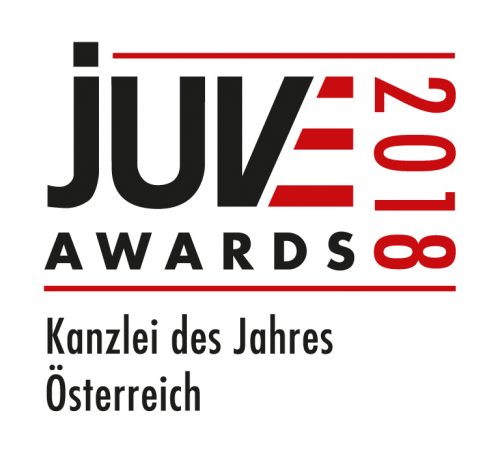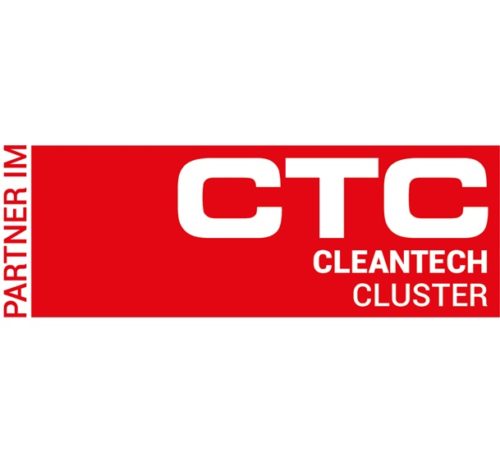Whistleblowing reporting systems
We help with implementation and processing!

“In 2023, sustainable developments in waste management continue:
On the one hand, significant regulations came into force at the beginning of the year – for example, certain waste transports must be carried out by rail (support is provided by the platform https://aufschiene.gv.at/) and manufacturers of commercial packaging must now also participate in a collection and recovery system on a mandatory basis.
On the other hand, further regulations are planned: The regulations on the deposit-return system for plastic beverage bottles and cans are to be specified in an amendment to the Waste Management Act 2002, the Waste Incineration Ordinance is to be re-enacted, and the Waste Verification Ordinance is to be amended. A Battery Regulation and a Packaging Regulation are currently being worked on at EU level.
In terms of waste enforcement, the ECJ ruling C-238/21 will have an impact on the recycling of excavated material.”

“The year 2023 will bring a number of legal innovations in the area of compliance. In order to avoid liability risks and reputational damage, companies should therefore deal with their individual compliance risks in a targeted manner and take appropriate measures.
In particular, the focus should be on corporate due diligence in (global) supply chains (keyword “Supply Chain Due Diligence Act”) as well as whistleblowing and whistleblower protection (keyword “Whistleblower Protection Act”). Due to the unabated high level of attention to the topic of sustainability, the area of environmental compliance is also becoming increasingly important. Recent events have also brought compliance measures to prevent corruption and discrimination in the workplace back into the focus of public attention.”

“Major cases that have received a lot of media attention in recent years have made society and politics call for a tightening of the criminal law on corruption. In particular, the acquittal of a former top politician on the grounds that the accused behavior was simply not punishable caused a stir in the media. A few days ago, the turquoise/green government presented its package for combating corruption in politics, which is intended to comprehensively reform criminal law on corruption. Specifically, it is planned, among other things, to bring forward the temporal scope of the corruption provisions. In the future, even candidates for an office who, in the event of their future office-holder status, accept an advantage for an official business contrary to their duties, will be liable to prosecution. Incidentally, the actual execution of the official business in breach of duty is not relevant. In addition, a new criminal offense is to be created with “purchase of a mandate” in Section 265a of the Criminal Code.
The draft law (“Criminal Law on Corruption Amendment Act 2023“) is currently being examined. Together with the Measures Execution Adjustment Act 2022, which will come into force in March 2023, and which has reorganized the placement of mentally-ill offenders, and the reform of the National Socialism Prohibition Act 1947 announced in November of the previous year, this amendment is supposed to make 2023 a very exciting year for (commercial) criminal law.”

“A lot happened in 2022: In the Amazon case, the European Commission gave a foretaste of the application of the Digital Markets Act, which will keep us even more busy from 2023 onwards. Meanwhile, the ECJ clarified burning questions about the prohibition of double jeopardy in the scope of antitrust law – and left others open that will give rise to further discussions. With the new Vertical Block Exemption Regulation including Vertical Guidelines entering into force, a significant reform of distribution antitrust law has taken place, which must now pass its first practical tests. Special attention will also be paid to the Horizontal Guidelines, which, like their pre-predecessor, will again contain a chapter on sustainability agreements. Speaking of sustainability: right at the beginning of the year, the European Commission published a draft for the handling of a far-reaching “sustainability exemption”, which could send out significant impulses beyond its actual scope of application – agriculture.”

“The year 2022 can be described as the “year of the power grids“. Not least because of the “near-blackout” in January 2022, the fact that efficient power grids are essential for the success of the energy transition has reached large parts of the population. The legislator has also recognized this and privileged green power plants in connecting to the public power grid. This also applies to the costs for grid connection. It is precisely these grid costs (“grid access fee”) that have triggered intensive discussions. The Regulatory Commission of the energy regulatory authority E-Control has now interpreted the relevant legal provisions in favor of plant operators. In the case of already existing (and sufficiently dimensioned) connections, the grid operators are not entitled to a grid access fee. However, the last word has not yet been spoken; it will be interesting to see, how the courts will decide and whether the legislator will make improvements to the existing regulations.”

“What sounds too good is mostly not (or at least not entirely) true. An example of this is the recently issued EU regulation for establishing measures to accelerate the expansion of renewable energies. It promises acceleration of procedures and facilitation of permits for the next 18 months or so (as long as one is not already in an ongoing procedure or Austria decides to apply the regulation also for pending procedures, as long as one fulfills the relevant and numerous – partly unspecific – requirements for claiming the individual privileges of the regulation and also argues this in a correspondingly valid way, as long as it does not fail due to the existing – in fact often understaffed – authorities, … the list is even longer). With the “Renewable Expansion Acceleration Package” announced at political level (probably also including the EIA amendment that is in prospect), everything is supposed to get better in the near future and in the longer term. Admittedly, this sounds almost too good. In order for projects to benefit from the proclaimed (and fundamentally to be welcomed) acceleration and improvement approach, our full legal commitment will in any case also be required in 2023.”

“In the marketing of energy from renewable energy projects, (renewable) Power Purchase Agreements (PPAs) are becoming more and more state-of-the-art. As long-term energy supply contracts, PPAs enable large energy consumers to reduce energy cost risks without having to make their own investments. Especially in times of an energy crisis, PPAs are an interesting instrument for securing “green” electricity at minimum risk. This form of energy marketing also has considerable advantages for project operators: Long-term supply contracts, for example, reduce the purchase risk and facilitate project financing. For project developers, the distribution of risk in the PPA also plays a major role in terms of financing (=”bankability of the PPA”). Those who commit themselves for the long term should therefore check particularly carefully.”

“The first payments for CO2 taxation are due under the National Emissions Certificate Trading Act (NEHG) for the short fiscal year 2022, and the CO2 price will rise by 2.5 euros to 32.5 euros per ton of CO2 from January 1st, 2023. For energy trading subject to the levy, it is about meeting the deadlines and safeguarding the interests of customers on the basis of the exemptions. It can always be assumed that the energy supplier will pass on the costs of the CO2 levy to the customers. For customers it is important that they take the opportunities to have their tax burden refunded. Johannes Hartlieb, Emil Nigmatullin and I are publishing the first comprehensive NEHG commentary with Manz, publication date February/March 2023.”

“Digitalization will not ‘pass by’, it is not just some technological trend. The only thing that will pass is the thought of it passing.” In the spirit of this quote by Michael Pachmajer, digitalization also does not stop at Austrian corporate law.
With the entry into force of the GesDigG 2022 (“Austrian Company Law Digitalization Act 2022”) on December 1st, 2022, the Digitalization Directive (RL (EU) 2019/1151) was implemented (with some delay) in Austrian law. Although some (digitalization) requirements had already been implemented in Austrian law before, the new GesDigG 2022 has now amended a number of laws (including, in particular, the Austrian Commercial Code, Commercial Register Act, Limited Liability Companies Act, Stock Corporation Act and Court Fees Act) in order to further advance digitalization in corporate law as well. In 2023, therefore, the formation of corporations in particular will be further digitalized, simplified – and in some cases made less expensive. For example, some fees will no longer apply when submitting the annual financial statements or when registering the status of shareholders.”

“The Austrian Brokers Act is to be amended as of July 1st, 2023. For this purpose, a draft law for the introduction of the “first client principle” is currently before parliament. In concrete terms, this means that in the future the party who commissions a real estate broker to find a tenant for an apartment or house will also have to pay the brokerage fee. This will usually be the landlord.
Which constellations will remain the same?
The sale of apartments as well as the sale of houses is not covered by the amendment; commercial real estate and commercial leasing are also excluded from the “first client principle”. Also, in cases where an employer concludes an apartment rental agreement as a tenant in order to make it available to employees, nothing changes.”

“After the Austrian legislator passed the Restructuring Act (ReO) in mid-2021, thus creating another type of procedure for the reorganization of ailing companies, no legislative innovations are to be expected in this legal area for the time being.
In practice, the number of insolvencies has risen again, but the “wave of insolvencies” that has been announced several times has so far failed to materialize, and the level of insolvencies has returned to pre-crisis levels. What is striking, however, is the number of bankruptcy applications rejected due to a lack of assets to cover costs, or the number of proceedings in which there is a distribution in accordance with Section 47 (2) IO due to insufficient assets and thus no distribution of the quota to insolvency creditors. It is also notable that the obligation to file for insolvency is sometimes handled relatively carelessly; companies are operated until there is actually hardly anything left apart from debts. The fact that this entails considerable liability problems for the people responsible is ignored.
Gläubigern ist daher weiterhin zu raten, verstärkt Augenmerk auf die Bonität der Creditors should therefore pay increased attention to the creditworthiness of business partners and, if necessary, take measures to assure the collectability of their own claims (retention of title; prepayment, etc.)
Zeichnet sich ein Insolvenzszenario ab, ist die Geschäftsleitung gut daran beraten, schnell zu handeln. So lassen sich nicht If an insolvency scenario emerges, management is well advised to act quickly. In this way, not only can personal liabilities be avoided, but if the business model is functioning, there are also good chances of reorganization.”

“This year, the gradual implementation of the EU Taxonomy Regulation will also contribute to greater clarity concerning the actual meaning of the term “sustainable economic activity”. The reference framework created in this way will allow an objective verification of whether or not companies are contributing to the realization of the ESG goals and will be an essential decision-making aid for investors when making investment decisions.
It remains exciting whether and when the EU Green Bond Standard will finally be adopted and which further frameworks the EU will enact with regard to sustainable financial products. This could significantly reduce existing legal uncertainties and, consequently, the risk of greenwashing in the financial sector.”

“According to the EU Directive, by December 17th, 2021, companies with more than 249 employees, legal entities under public law (such as cities and municipalities), and companies owned or controlled by the latter must have set up an internal whistleblower reporting channel. Two years later, companies with more than 50 employees will also be required to do so. The basis is a law (yet to be enacted) that will implement the EU’s Whistleblower Directive (2019/1937). Although this directive should have been implemented into Austrian law by December 17th, 2021, the Austrian legislator is still in default. The current draft leaves a number of questions unanswered. In particular, it will be interesting whether and which co-determination rights the works council will have in connection with the introduction of internal reporting channels and if any necessary consent from the works council can also be enforced in court. Details regarding the conflict between whistleblower protection and data protection law are also open. It also does not seem conclusively clarified to which offenses the scope of the planned “Whistleblower Protection Act” will extend or whether the scope of the planned law will go beyond the requirements of the directive (“gold plating”).
Whatever the legal implementation will look like: Haslinger / Nagele already offers a solution
for companies:
Test our “Whistleblowing-System”!”
This article is for general information only and does not replace legal advice. Haslinger / Nagele Rechtsanwälte GmbH assumes no liability for the content and correctness of this article.
19. January 2023






